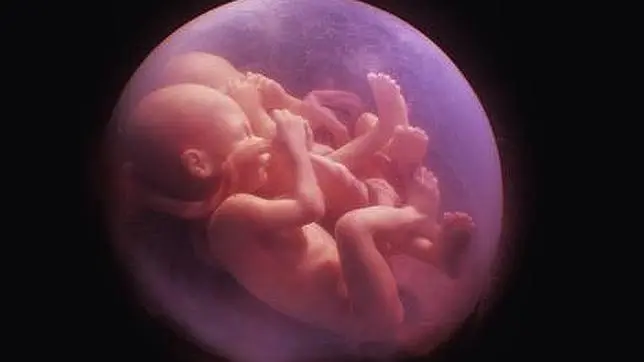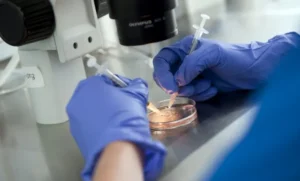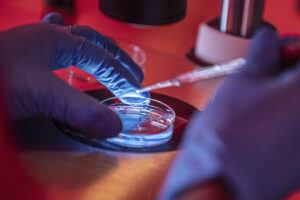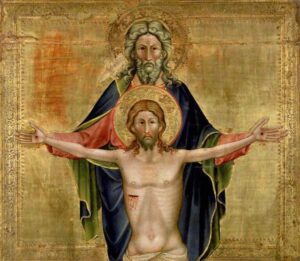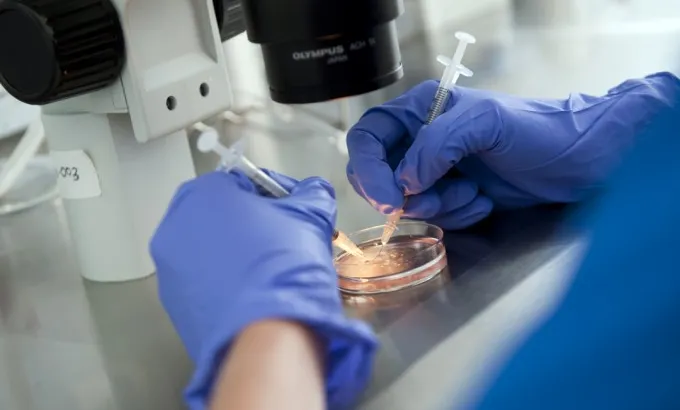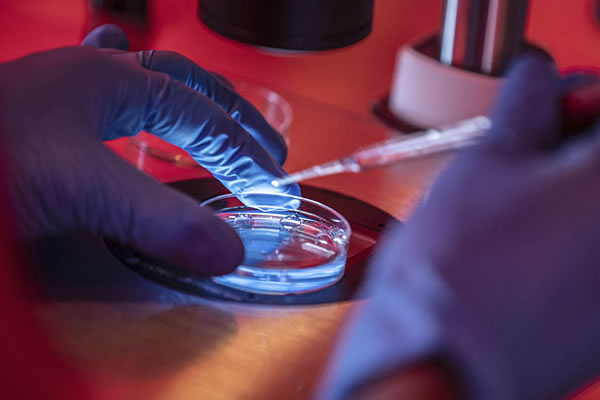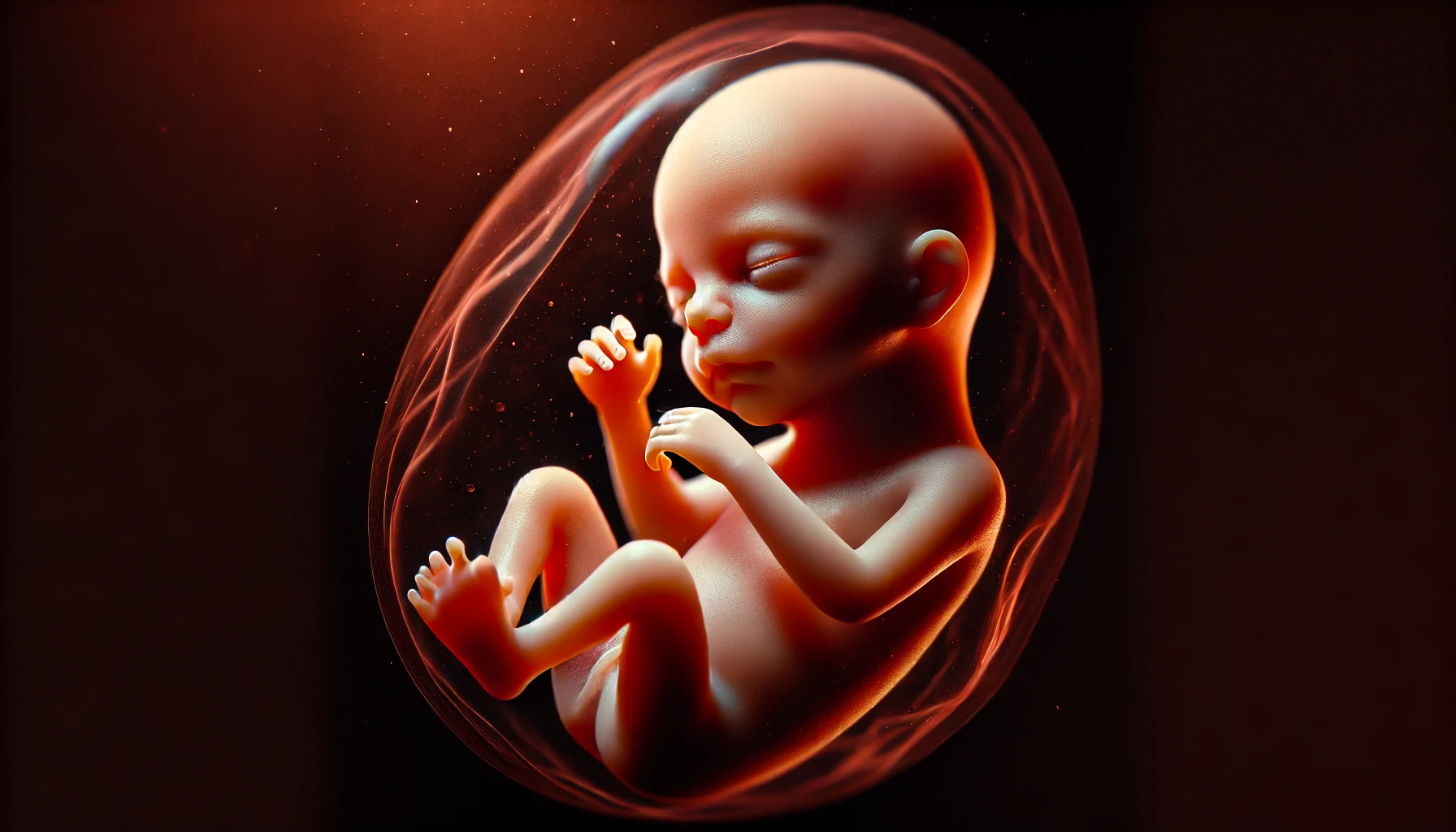Question:
As I understand it, and I believe, animation occurs at the very moment of conception, which is a very popular argument against abortion. If I am not mistaken, this theory is called immediate animation, or at least that is how I was taught. A problem arises for me: unlike twins that result from the simultaneous fertilization of two different eggs by two different sperm, identical twins are caused by the division, immediately after conception, of the same fertilized egg. According to the theory of immediate animation, we would first have one human person, which would then divide into two halves to become two human persons. Is this not a metaphysical impossibility? I sincerely thank you for this work you are doing and pray for your intentions and those of the whole institute. I greet you in Christ and Mary M. De M.
Answer:
Dear young man:
The human individual is composed of a soul and a body; the division of the morula into two parts does not in itself imply the division of the soul: it is the body of the individual that divides and not its spirit, and therefore there is no contradiction with the ontological reality of the zygote. On the other hand, at the moment when another embryo becomes physically determined (that is, when the morula divides, giving rise to a new embryo) it receives its own soul, which has nothing to do with the soul of the embryo from which it has taken origin.
Therefore, God infuses a soul at the moment when the spermatozoid fuses with the ovum. Then, by a phenomenon not yet explained, in some very rare cases, one of the cells of that human being, which by its state is still ‘totipotent’, separates, behaving as if it were a new embryo; it is at that moment that God infuses a soul into that new individual, distinct from the previous one. Hence, we have not only two distinct individuals, but one ‘older’ than the other.
I recommend reading Antonio Spagnolo, Bioetica nella ricerca e nella prassi medica, Edizione Camilliane, Torino 1997, pp. 239-244. And: Caspar, Ph., Individuation génétique et gémellité: l’objection des jumeaux monozygotes, Rev. ‘Étique’ 1992, 4: 81-90. Here the author shows that the objection to which you refer comes from the conception of the individual elaborated by the philosophy of Leibniz (which has its roots in Descartes), while it is easily explained by accepting Aristotelian philosophy.
Fr. Miguel A. Fuentes
A contribution by Dr. Mario Caponetto:
Buenos Aires, September 29, 2003.
Dear Father Fuentes:
I have read, with great attention, an answer of yours to a consultant who asked about the theory of the immediate animation of the zygote and the difficulty that such theory poses in cases of twins coming from the same zygote that divides.
Both in the consultation and in your answer, an extremely difficult question is presented once again, and the solutions offered are not always the most adjusted to a correct Philosophy of Nature and even to Metaphysics itself. For this reason, I would like to offer you some reflections with the intention of contributing, albeit in a modest way, to the elucidation of the subject.
First of all, it must be noted in the question and in the answer, a terminological imprecision that must be promptly clarified. Indeed, it is not correct to speak of delayed animation versus immediate animation. In any case, one should say delayed human animation or immediate human animation. There is no doubt that the zygote – the first stage of the human generative process – is animated because of vital operations taking place in it (and this is undeniable), these operations cannot but proceed from a formal principle that we call soul. What is under discussion is whether the soul present in the zygote is, ab initio, a human soul or not. Or rather, whether the human soul is infused at the very moment of fertilization or at another moment of the human generative process. And this is the real issue under debate. I repeat, no one disputes that the zygote is animate.
In the second place, both the question and the answer reflect the current opinion among the Catholic moralists of today. It seems, in fact, that if it is not affirmed with total certainty that the soul present in the zygote is the human soul and if the status of personhood of this zygote is not held with absolute certainty, there is no way to base a moral judgment against abortion (as the author of the consultation expressly points out). The defenders of abortion base their argument precisely on the denial that the primitive embryo is anything more than a collection of totipotent cells; therefore, the possibility of attributing to this embryo any human or personal character is completely excluded. The conclusion drawn by these defenders of abortion is that if until a certain time after fertilization we cannot speak of a human person, it is perfectly licit to terminate the pregnancy, since a human person is not being killed, properly speaking. However, here, as in so many other issues, Catholics make the mistake of accepting that the discussion is taken to the adversarial arena. And this is how we take part in a sterile and meaningless debate from the strict formal perspective of Moral Science. But I will refer to this subject in a moment.
Lastly, in the case of the consultant and the consulted, a much discussed topic comes up: what happens in the case of twins that come from the division of the same zygote? If the zygote is a person and the person is undivided, how can it be divided? Can we speak here of a new generation, namely that the person of the zygote engenders another person? We are, once again, in the adversary’s terrain, which obliges us to give accurate answers in a matter that is difficult, conjectural and open to opinion, as we shall see.
In my opinion, Father, for a better elucidation of this question, we must take into account, first of all, an adequate epistemological articulation between Biology and Genetics, Philosophy of Nature, Metaphysics, Sacred Theology and Moral Science. In fact, it should be noted that it is not up to the biological sciences to determine whether the human soul is already present in the zygote, nor to rule on the status of the embryo as an individual person, but only to provide data that can be useful for the reflection of those sciences whose task it is to make such determinations. These sciences are, fundamentally, the Philosophy of Nature, Metaphysics and Sacred Theology. It corresponds, then, in accordance with a correct methodology, faithful to the epistemic tasks of each discipline (that is, its objects), to first examine, classify, gather and organize the data of Biology in order to obtain, in this way, a phenomenology – uncontaminated of any speculation – of the generative process. Once this first step is accomplished, it is up to Natural Philosophy to determine about questions such as the unity and individuality of the embryo from its earliest stages (above all, with respect to the paternal cells) and the consideration of whether or not the cytological organizations of such early stages constitute an adequate materia signata for the reception of the rational form (the human soul). The third step is to illuminate, from a solid biological phenomenology and, above all, from an upright Natural Philosophy, the specific task of Ethics which, as a practical science, must be subordinated to the principles of the higher science, that is, the Philosophy of Nature. The consideration of the embryo as a person, as well as the origin of the human soul, concern, finally, Metaphysics (the person is a notion of an eminently metaphysical character) and Sacred Theology, the only sciences that can give the ultimate foundation to such questions. Such, in my modest judgment, is the adequate concatenation of the steps to follow in the investigation of this arduous subject. But it happens that, habitually, this articulation is not followed and, for that reason, errors are made that discredit and weaken the Catholic doctrine rather than strengthen it.
Let us take a closer look at what we have just said. If we stick, in the first place, to the strict data of current Biology, we can conclude the following:
a) the human generative process begins with the penetration of a male gamete (spermatozoon) into a female gamete (ovum)
b) before the aforementioned penetration, each of these gametes exhibits a series of enzymatic processes (very important in this respect is the so-called S phase of the cell cycle) which are specific to them and which tend to make possible and direct in an orderly manner the fusion of both germ cells;
c) the union of the gametes gives rise to a cell, the so-called zygote, which constitutes a novelty, structurally and genetically speaking, and which from the very moment of its constitution as a new cell, exhibits a series of processes all oriented towards the fusion of the male and female pronuclei (syngamy) and a subsequent and intense number of concatenated events of division, differentiation and cellular organization that leads to that original and first cellular structure, i.e. the zygote, to successive forms of increasingly complex organization that lead, if not opposed by some failure of nature, to the constitution of one or more complete human organisms (I emphasize one or more because there is the possibility that the cells of the so-called central massif can be oriented to the division of the zygote into several embryos);
d) this whole process of extraordinary plasticity appears, clearly, as a vital continuum, unique, irreversible (if there is no failure in the natural course of the above-mentioned events) and driven by an unquestionable teleology: the constitution of one, two or more complete human organisms.
Now, these facts, firmly proven by biological science, must be properly interpreted in the light of the principles of natural philosophy. What can this science contribute? Fundamentally a philosophical view, strongly rooted in hylomorphism, of the entire human generative process. And here what Aristotle teaches remains fully valid, namely, that in the generation of something there is presupposed the corruption of a previous form and the addition of new forms. Thus, in embryonic development, a vegetative form succeeds, by corruption of this, a sensitive form to which, corruption by means of the sensitive one, another rational one succeeds. This theory (if you will, the ‘delayed human animation’) is fully assumed by St. Thomas (cf. especially Questio Disputata De Anima, a 11, ad 1) although it must be said that, in truth, Aquinas never dealt with this subject except in the context of other matters and accepting, with great respect, the scientific opinions of his time.
Well, in the case of man, the Aristotelian theory of generation encounters a drawback that the Philosopher could not foresee, namely, that it would be necessary to admit that the human soul, which is a spiritual substance, would proceed from the corruption of material forms. Certainly, spiritus non ex materia. St. Thomas consistently taught that the human soul is at once a forma corporis, a motor corporis, and a spiritual substance (hoc aliquid). And because it is a spiritual substance, it can only be produced by God’s creation, which does not pertain to the other forms, thus denying any form of traducianism (cf. Summa Theologiae I, q 90, a 2, corpus). But then, at what point in the generation of man is the human soul created and infused by God? Father Ubeda Purkiss, in his introductions to the treatise on man in the Summa, answers: ‘We do not know with certainty. St. Thomas says that at the end of human generation […] he finds no difficulty in the successive generation of these forms by the action of two coordinated agents which, in the present case, are man and God’ (Summa theologica, Spanish version of the BAC, page 510).
Our present biological knowledge does not disprove the theory of St. Thomas, nor has it made our knowledge more certain. For here, in addition, another fundamental aspect of hylomorphism enters: I am referring to the congruence and mutual convenience that must exist between matter and its form. In this case it would have to be said that until it reaches a certain degree of development, embryonic matter would not be apt to receive the human form which, because it is so eminent, requires a matter of the utmost complexity and organization, as St. Thomas also clearly teaches (cf. Quaestio disputata de anima, article 8). Now then; today it is affirmed (without any foundation) that because the zygote possesses all the genetic information it is already matter apt to receive the human form. But why? The possession of the totality of the genetic information does not make the matter more apt to receive the rational form since this information is almost pure potentiality and must be considered rather as a property or disposition of the matter. Is it not more reasonable to say that the zygote is the matter ex qua and in qua, from which one or more human beings are to be formed and not to advance beyond this certain judgment?
And now to the moral aspect of our subject. The certainty that the embryonic matter, ab initio, is matter ex qua and in qua from which one or more complete human organisms are generated, is enough for this embryonic matter to deserve the maximum protection and tutelage from the point of view of Moral Science and Law. For the only thing that is incumbent upon Moral Science is to establish a practical judgment: since this embryonic matter is the subtract of a process whose natural end is to generate human beings, it is not licit to destroy it (abortion) or alter it (assisted fertilization techniques) in any way. That is why I insist that what must be taken into account is not the zygote (only an initial stage of embryonic development) but the entire human generative process, which is naturally ordered, as its own end, to the generation of human beings.
If we maintain this position, not only will we avoid a sterile and unnecessary debate for Morality, but also the question raised in the consultation would be saved: the issue of twins coming from the division of a single zygote. In this regard, you say, Father, that ‘it is the body of the individual that divides and not its spirit, and therefore there is no contradiction with the ontological reality of the zygote’. But this sounds more Cartesian than Aristotelian. It seems unreasonable to me to suppose that one cell of an embryo generates another embryo and that God infuses that new embryo with a human soul. Because the same question always remains: under what form does the embryo divide and generate another embryo? One can say: that form is none other than the human soul that begets another being in the same way as an adult human being begets another. But in that case, how can something beget if it lacks the organs naturally necessary for the exercise of reproductive power? And how could it beget alone?
Well, dear Father, I don’t want to take up any more of your time. I am only passing on to you some suggestions that, perhaps, can help to clarify a very difficult question.
May God and the Blessed Virgin bless you and help you in the commendable task you are carrying out for the good of so many souls.
Affectionately in Domino.
Mario Caponnetto

